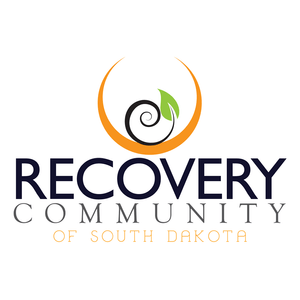

Begin your journey today!
Begin your journey today!
- Home
- Contact Us
- About
- RCOSD Blog
- Resources
- Calendar
- Healing Opportunities
Our mission | Our vision
OUR MISSION
Recovery Communities of South Dakota’s (RCoSD) mission is to create, illuminate and support a culture of recovery and holistic wellness around trauma | addiction | mental illness. We utilize advocacy, education, and support to achieve this mission.
RCoSD defines Recovery as:
A process of change through which individuals improve their health and wellness, live a self-directed life, and strive to reach their full potential. (SAMHSA)
OUR VISION
- South Dakota develops a culture of holistic wellness - supporting trauma/addiction recovery for individuals, families and our communities,
- South Dakotans seeking trauma/addiction recovery have access to the highest quality care, services, and support,
- South Dakotans in trauma/addiction recovery are equal and valued members of our State and our local communities,
- South Dakotans in trauma/addiction recovery have opportunities to achieve their fullest educational, occupational and civic potential,
- Recovery from trauma/addiction and the development of healthy strategies is a celebrated reality.
CORE BELIEFS
- Recovery is a reality in the lives of millions.
- There are many paths to recovery.
- Recovery flourishes in supportive communities.
- Recovery is a voluntary process.
- Recovering people are part of the solution.
- Recovery gives back what addiction takes away.
Land Acknowledgement
Today, Recovery Communities of South Dakota rests on the ancestral lands of the Oceti Sakowin, the Seven Council Fires. The tribal alliance, comprised of individual bands, of the Seven Council Fires is based on kinship, location and dialects: Santee-Dakota, Yankton-Nakota and Teton-Lakota. We acknowledge the people who resided here for generations and recognize that the spirit of the Oceti Sakowin is innate to and imbued within this land. As a recovery community, we will continue to build upon and strive to honor our relations with the people of the First Nations; Cheyenne River Sioux Tribe, Crow Creek Sioux Tribe, Flandreau Santee Sioux Tribe, Lower Brule Sioux Tribe, Oglala Sioux Tribe, Rosebud Sioux Tribe, Sisseton-Wahpeton Oyate, Standing Rock Sioux Tribe and Yankton Sioux Tribe.
Redefining Recovery
Learning to walk with our grief and trauma with health and wellness.
Unresolved grief
Grief and grief is an aspect of life. When we experienced prolonged grief and complex grief and compounded grief, putting one foot in front of the other and carrying on with day to day tasks can feel impossible and the light of possibility and hope seems to have been extinguished. Discovering, learning and developing healthy tools to walk with our grief and trauma is essential and can feel extraordinarily challenging. Here is some help for addressing grief and loss. Additionally, reaching out to elders, wisdom keepers, attending ceremonies speaking with trusted friends and seeking help is important. We do not walk alone through this process of recovery.
Trauma
Historical trauma and generational or intergenerational trauma are not past experiences - the impacts of historical trauma has significant implications in our present day life. Learning about the challenges of historical trauma, intergenerational and generational trauma can be the beginning of our healing process in recovery.
Ethleen Iron Cloud-Two Dogs and Richard Two Dogs share information about the Lakota Worldview, describing the four stages of life recognized in the Lakota community and the ceremonies that accompany each stage. These ceremonies are believed to contribute to a balanced life from childhood through returning to the spirit world.
This is the first video in a two-part series that demonstrates what the journey is like when smooth and free from interruption.
The RCOSD Blog
Thoughts, musings, and ruminations.
February 21, 2019 · Substance Use,Addiction,self-directed life,RECOVERYRupinder Kaur Legha, M.D. Douglas Novins, M.D. Objective: Culture figures prominently in discussions regarding the etiology of alcohol and substance abuse in American Indian and Alaska Native (AI/AN) communities, and a substantial body of literature suggests that it is critical to developing...February 4, 2019 · Neuropsychological,Addiction,Substance Use,Decision-Making,InterventionsAbstract The clinical relevance of neuropsychological deficits in addicted individuals has fostered interest in treatment strategies aimed to effectively target executive and decision-making dysfunction. One of the best-validated interventions for executive dysfunction is Goal Management...January 17, 2019Abstract Neurocognitive impairments are prevalent in persons seeking treatment for alcohol use disorders (AUDs). These impairments and their physical, social, psychological and occupational consequences vary in severity across persons, much like those resulting from traumatic brain injury;...Speakers
Creating a Culture of Recovery one Step at a Time
1Speaking at a Non 12 Step meeting
For folks who would like to speak to groups outside of 12 step meetings - learning the do's and dont's is very useful here is some information for you!
212 Step Cooperation with Professionals
3Are You Looking for a Speaker in Recovery
Recovery Communities of South Dakota (RCoSD) ©2021
Recovery Communities of South Dakota (RCoSD) is a South Dakota nonprofit IRS approved 501c3 organization - EIN#26-3429018
PO Box 2022, Rapid City, SD 57709 - 605-858-1385
DISCLAIMER: THIS WEBSITE DOES NOT PROVIDE MEDICAL ADVICE. The information contained on this website is not intended to be a substitute for or to be relied upon as, medical advice, diagnosis, or treatment. This website is for informational purposes only. Always seek the advice of your physician or other qualified health provider with any questions you may have regarding a medical condition.
